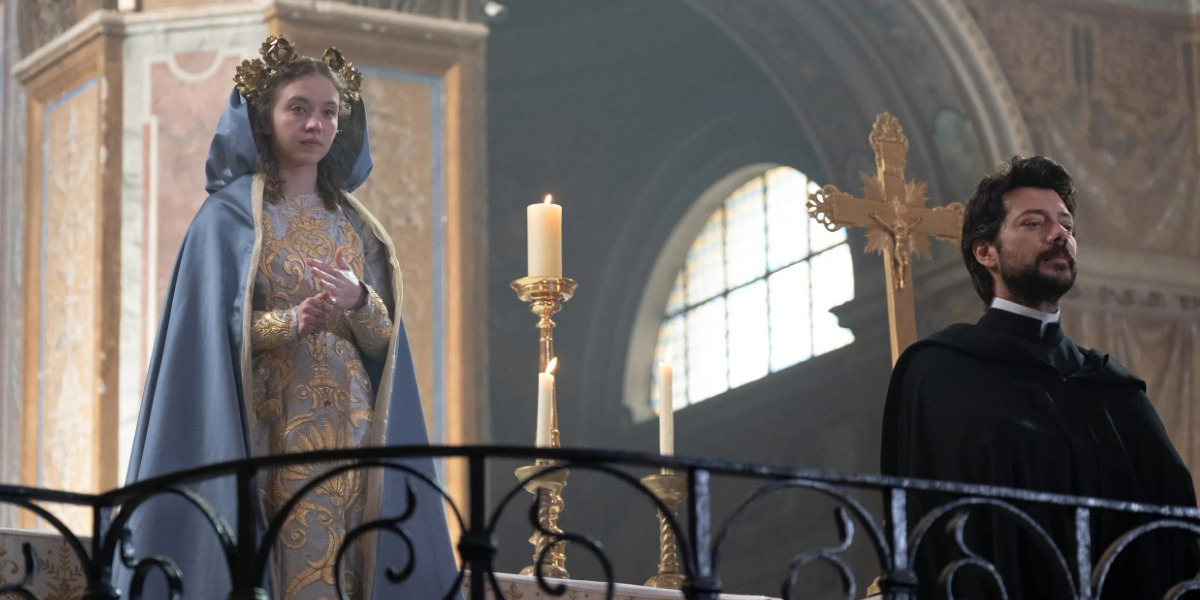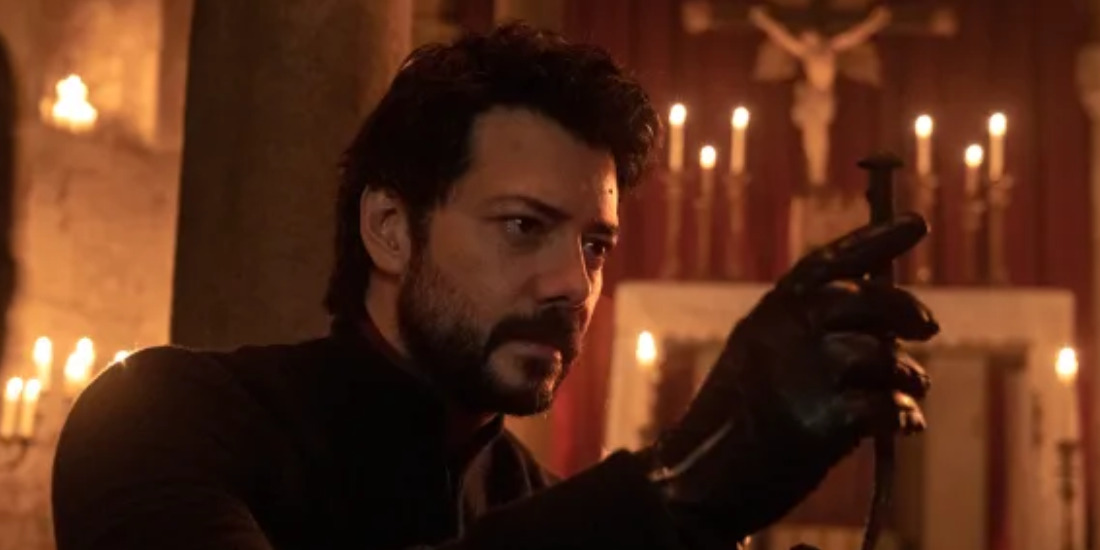The haunting narrative within the religious horror film, ‘Immaculate,’ charts the story of an unassuming young nun’s tragic involvement with a cultish congregation and its crazed secrets. Circumstances bring Sister Cecilia to an isolated Catholic convent in Rome’s countryside, populated with other devout people of faith. However, during the duration of her stay— under Father Sal Tedeschi’s charge— Cecilia undergoes an unfathomable turn of events as she learns of her virginal pregnancy. Hailed as the mother of the new Savior, Cecilia’s life of devotion slowly turns devastating as her choices are taken away from her while she’s trapped under the convent’s sick ploys.
Cecilia’s narrative— confined within the enigmatic walls of a Gothic convent for almost its entirety— presents a tale of gradual entrapment that explores themes of religion with a specific focus on Catholic trauma. Therefore, Father Tedeschi’s character— defined by a blend of science and faith— remains an intriguing fixture within the film. For the same reason, viewers might grow curious about his role within the narrative and how it relates to reality. SPOILERS AHEAD!
Father Sal Tedeschi: A Fictional Representation of Oppression
Father Tedeschi is not based on a real priest and remains a fictional character confined within the film’s fictitious borders. As ‘Immaculate’ begins with its air of supernatural horror, sporting mysterious red-masked nuns and an evocative convent building, the tale seems laced with fantastical elements. Nevertheless, eventually, the introduction of sci-fi elements reinforces the contemporary source of the film’s horrors. As such, the power of terror shifts from an imagined enemy to the tangible form of Father Tedeschi and his authoritative power over Cecilia and the other nuns of the convent.

At first glance, Father Tedeschi’s pleasant presence among a group of soured authority figures allows his character to instill a fake sense of trust within the viewers and Cecilia alike. However, the same dissolves once the reality comes out in the open that Tedeschi is directly involved in the convent’s horrifying idea of forcing pregnancy upon its nuns to bring about the birth of a second Savior. As a biologist, Tedeschi’s experiments had always been unconventional. Yet, it was only under the banner of this particularly manic convent that the man was allowed to freely experiment with something truly devious: the rebirth of Jesus Christ through remnants of his blood and tissue.
While such a concept remains outlandish in the real world— condemning Tedeschi and his schemes to a realm of fictionality— viewers may find the scientifically skilled priest and his plans to hold a resemblance to a few other stories. At first glance, the 2022 similarly religious horror film, ‘The Devil Conspiracy,’ and its leading scientific character, Dr. Laurent, present a kindred storyline. Furthermore, outside of cinema, several literary endeavors have equipped the plot point of Jesus’ cloning to explore religion in their own ways. A few notable examples stem from James BeauSeigneur’s ‘Christ Clone’ novels and ‘The Jesus Thief’ by J.R. Lankford.
Aside from fictional familiarity, Tedeschi’s character also holds some relevance to the real world. Although the character does not hold any real-life inspirations in any individuals, the equipment of his character to showcase authority’s control over women’s bodily autonomy presents a visceral and non-subtle parallel to relevant social issues. Actor Álvaro Morte, who embodies the character, spoke about the same in a conversation with Nova Stream and said, “It’s a movie that talks about feminism, it talks about motherhood, it talks about a world of woman controlled by one man.”
Read More: Movies Like Immaculate


You must be logged in to post a comment.